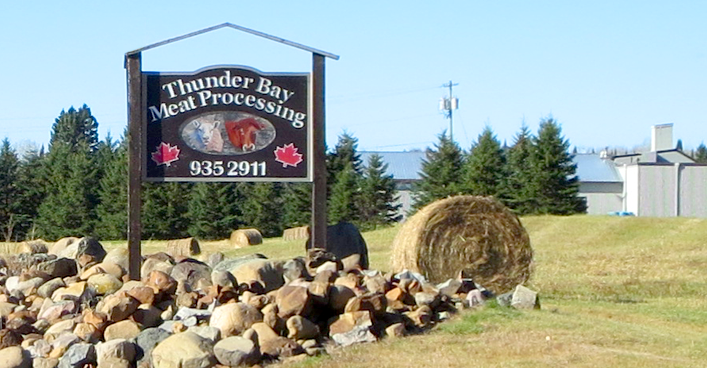MURILLO — It’s understandable that Murillo’s Paul and Eleanora Vellinga want to retire. For nearly 40 years, they’ve operated one of the most hands-on businesses one can think of, and they’re getting a bit tired.
But unloading a meat-processing plant is not as simple say, as selling a used car; and so, their $2.25-million business, after a few years on the market, remains unsold.
“It takes a special person,” Eleanora Vellinga said in an interview on Wednesday. “There’s only a small percentage of people out there who are both capable and willing.”
Though no decisions have been made, the prospect of losing the Oliver Road abattoir would be tough on Thunder Bay-area farmers, who would mostly likely have to travel three to four hours to Dryden to have their cows, goats and other livestock slaughtered.
Lisa Koshel, a Dryden-area beef farmer and a member of a board that oversees the Cloverbelt Country Meats processing plant just west of Dryden, said the shuttering of Velllinga’s business would strike a blow to local agriculture.
“It would drive up the cost of food,” said Koshel, noting farmers would be forced to pass on extra transportation costs to customers.
A Slate River Valley beef farmer looking to take her cows to Cloverbelt for processing would be looking at two trips, because beef has to hang for two weeks after it’s been butchered.
Koshel said a non-profit board of farmers took over the Cloverbelt operation in 2018 after it needed upgrading and its future became uncertain.
“Our board members are all (meat) producers, so it was in our interest to make this arrangement work,” Koshel said.
It was fortuitous that the people who worked at the Cloverbelt plant agreed to stay on, because they had the experience and know-how, Koshel added.
The meat business “isn’t for anyone,” Koshel said. “It’s one of those trades that seems to be lacking in our society. Some people show an interest later in life, but by that time they don’t have a lot of working years left.”
According to the Ministry of Agriculture, Food and Rural Affairs, there are just under 120 provincially licensed abattoirs in Ontario. Eleanora Vellinga said she remembers when there were a lot more.
The Vellinga’s business, which sits on 103 acres and comes with a modern 6,200-square-foot plant, does sound attractive — for that special person.
The “seller will stay on to train a potential buyer on all butcher skills,” the real estate ad for the property reads.
“Any business you own is a lifestyle,” Vellinga said. “We’re busy, but it’s a nice-and-steady kind of busy.”
The Chronicle-Journal asked the agriculture ministry if the province would take steps to fill the gap if a buyer can’t be found for the Vellinga’s business and there is no longer an abattoir in Murillo. A ministry spokeswoman said she would provide a response Friday.
The Chronicle-Journal / Local Journalism Initiative
